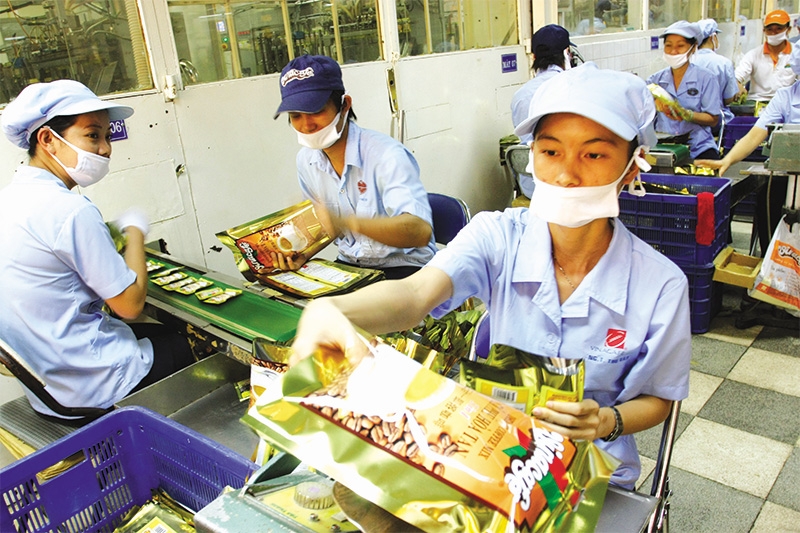Fixes required for SOE progress slip
 |
| Transparency is a must when it comes to delays or losses in SOE equitisation plans, Photo: Le Toan |
Like many National Assembly deputies, Do Van Sinh last week told VIR that he felt anxious about the snail-paced equitisation and restructuring of state-owned enterprises (SOE).
Sinh, representing the central province of Quang Tri, cited a foreign investor wishing to purchase stakes from an SOE, but ultimately failing. “The investor wants to buy 51 per cent stake from the enterprise, but the enterprise only offered 30 per cent,” Sinh said. “The investor quit the plan as it wants to have a big voice in the business and make important decisions about its operation.”
“This case is just one among many similar others seen in Vietnam over the past few years. According to a government report and information that we have obtained, the speed of SOE equitisation and restructuring is slowing down,” Sinh added. “Since early this year, no SOE has been equitised. If the government has no sturdy solutions, it will be very hard to reach the set target.”
According to the Central Party Economic Committee (CPEC), the equitisation of SOEs in Vietnam remains very slow. In the first four months of this year, no SOE was equitised, or had their equitisation schemes adopted. Under Document No.991/TTg-DMDN dated July 2017 by the prime minister, the 2017-2020 period looked to complete equitisation of 127 SOEs, including 44 in 2017, 64 in 2018, 18 in 2019, and one in 2020.
This year, some ministries are required to complete equitisation of their enterprises. While the Ministry of Industry and Trade must carry this out for eight enterprises including Vietnam National Coal, Mineral Industries Group, and Vietnam National Chemical Group, the Ministry of Agriculture and Rural Development must do likewise for the Vietnam National Coffee Corporation, and the Ministry of Information and Communications must do the same for its Vietnam Posts and Telecommunications Group.
However, by late 2018, Vietnam had about 514 SOEs and only 33 SOEs were equitised in the year. Another 23 had their equitisation schemes approved.
“The speed of equitisation remains low, failing to reach the plan approved by the prime minister,” said a bulletin from the Ministry of Finance (MoF).
According to the MoF, from the beginning of 2016 to November 2018, total money collected from SOE equitisation and divestment hit about VND206.7 trillion ($8.99 billion).
Pushing forwards
While the government told the National Assembly last week that by the end of this year, it will continue speeding up SOE equitisation and restructuring. The National Assembly Economic Committee proposed that the government create more solutions to reach the target.
“Leaders of ministries, sectors, localities, groups, and corporations must be responsible when delaying SOE equitisation and restructuring,” said the committee chairman Vu Hong Thanh. “All SOE activities must be made transparent. Over the recent past, although many SOEs have sold their stake, the number remains meagre.”
The CPEC reported that many SOEs have failed to equitise and restructure themselves due to a very small ratio of stakes sold, such as Vietnam National Shipping Lines (1 per cent), Power Generation Corporation 3 (3 per cent), Song Da Corporation (0.8 per cent), and Vietnam Rubber Group (21 per cent). “This situation has made these SOEs fail to reach equitisation targets, which are to renew governance and attract private capital,” said CPEC vice head Cao Duc Phat.
According to the MoF, last year, the initial public offering of 20 SOEs raked in a big sum of VND20.3 trillion ($882.6 million), in addition to VND7.9 trillion ($343.5 million) from capital divestment. Thus, since 2016 when the new government was elected, the total sum from equitisation and divestment has been more than VND170 trillion ($7.4 billion).
To-do list
Prime Minister Nguyen Xuan Phuc issued a directive on boosting SOE restructuring, equitisation, and divestment as a prime priority for the government to implement in 2019.
“The responsibilities of all individuals and organisations in delaying equitisation, divestment, transaction registration, and listing in the stock market will be specified. All violators will be punished,” PM Phuc stressed. “We will deal with all SOEs and investment projects with delay and losses. Any ineffective SOE will face bankruptcy or transfer to investors of other economic sectors.”
The government will intensify its inspections over not only all SOEs and state-funded projects, but also over the heads of these enterprises about how they have obeyed the state regulations about equitisation and divestment, as well as the performance of their enterprises.
”Periodically, all information about equitisation and divestment must be openly publicised, so that the SOEs’ performance can be supervised,” PM Phuc noted.
According to Nguyen Hong Long, vice head of the Steering Committee for Enterprise Renewal and Development, in the second quarter of 2019 there will be a decision on adjusting the equitisation and capital divestment of SOEs.
“However, the plan of equitisation and capital divestment will have to be completed by 2020,” Long said.
What the stars mean:
★ Poor ★ ★ Promising ★★★ Good ★★★★ Very good ★★★★★ Exceptional
Related Contents
Latest News
More News
- State corporations poised to drive 2026 growth (February 03, 2026 | 13:58)
- Why high-tech talent will define Vietnam’s growth (February 02, 2026 | 10:47)
- FMCG resilience amid varying storms (February 02, 2026 | 10:00)
- Customs reforms strengthen business confidence, support trade growth (February 01, 2026 | 08:20)
- Vietnam and US to launch sixth trade negotiation round (January 30, 2026 | 15:19)
- Digital publishing emerges as key growth driver in Vietnam (January 30, 2026 | 10:59)
- EVN signs key contract for Tri An hydropower expansion (January 30, 2026 | 10:57)
- Vietnam to lead trade growth in ASEAN (January 29, 2026 | 15:08)
- Carlsberg Vietnam delivers Lunar New Year support in central region (January 28, 2026 | 17:19)
- TikTok penalised $35,000 in Vietnam for consumer protection violations (January 28, 2026 | 17:15)

 Tag:
Tag:




















 Mobile Version
Mobile Version